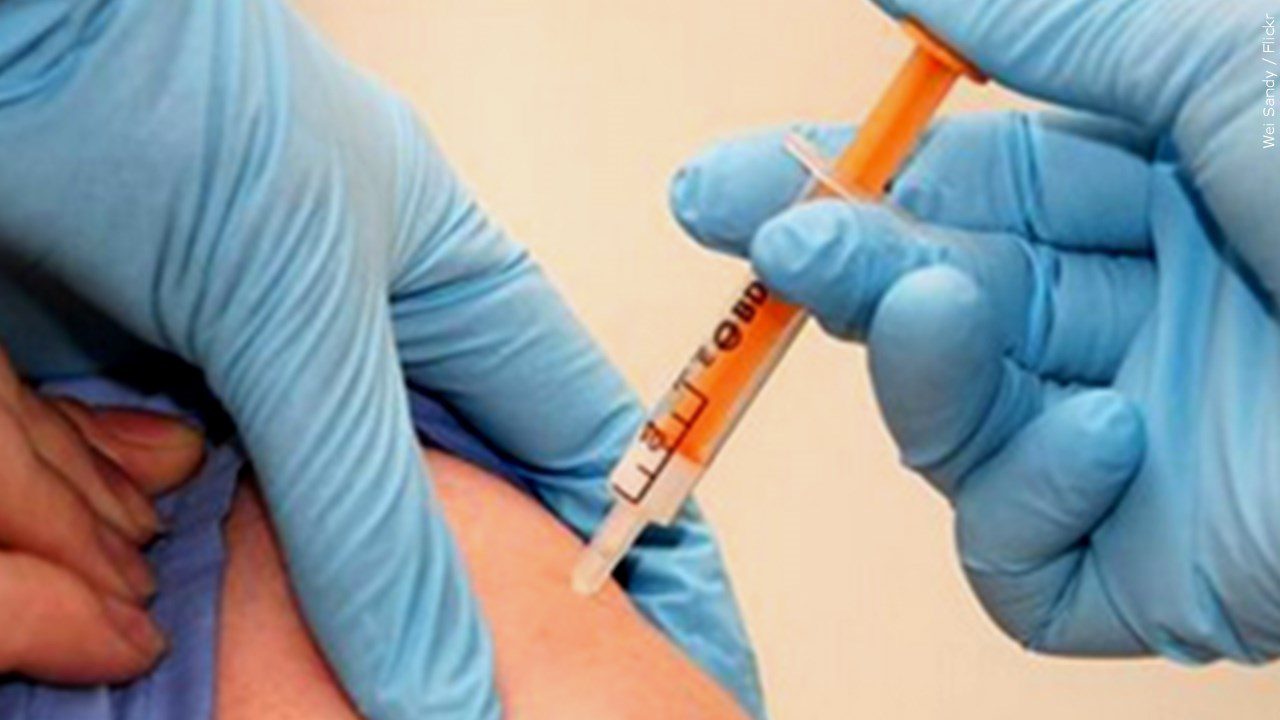Minnesota Department of Health urges residents to be up to date on measles vaccination as outbreak continues

Credit: MGN
(ABC 6 News) — Health officials are urging families to make sure they are up to date on their measles, mumps and rubella (MMR) vaccine as a measles outbreak continues to impact unvaccinated children in the Twin Cities metro area.
Measles is a highly contagious rash illness that spreads easily by coughing, sneezing or even being in the same room with someone who has measles. It can be spread before someone shows symptoms. The virus can remain in the air for up to two hours after an infected person leaves an area. Measles can cause serious disease leading to hospitalization and even death.
Since May, 30 cases of measles have been reported in Minnesota as part of this outbreak. Initial cases were reported in May and June, but the outbreak started to take off at the end of July. Cases have ranged in age from 7 months to 10 years, with one case in an adult, and about 1 in 3 cases have required hospitalization. So far, the outbreak is largely affecting unvaccinated children in the Somali community in Minnesota. However, anyone who is not vaccinated is at risk of getting sick with measles.
“Measles is currently circulating, and infections can be severe,” said Dr. Ruth Lynfield, state epidemiologist and medical director at the Minnesota Department of Health (MDH). “I urge all parents to be sure that their children are vaccinated because we know that vaccination offers the best protection.”
After over 50 years of use, the MMR vaccine has been shown to be safe to receive and works to prevent measles. General recommendations for MMR vaccine are for children to get two doses, one at 12-15 months of age and one at 4-6 years of age, although a second dose can be given earlier.
“While parents may not be able to protect their kids from all the risks that come with childhood, you can protect your child from measles. The MMR vaccine is extremely effective at protecting kids, families and the entire community,” said Dr. Abdul Abdi, pediatrician at Children’s Minnesota via a news release. “Some families seem concerned that the MMR vaccine is somehow linked to autism, but this is a myth. Regrettably, vaccination rates against measles have dropped significantly in our Somali community over the past 10-15 years, yet the number of autism cases have not decreased. This clearly demonstrates that there is no link between the MMR vaccine and autism.”
There are other notable reasons to get vaccinated beyond preventing illness. Unvaccinated people exposed to measles need to stay home and away from others (quarantine) for 21 days. This means missing school, social and family events, religious events and gatherings, work, vacations and more.
In addition to school starting, there are some upcoming events in the Twin Cities metro area that could bring together large numbers of people, such as the Islamic Association of North America Annual Convention on Sept. 1 and the Annual Minnesota Muslim Convention on Sept. 14. Health officials urge attendees of these and other big events to be vaccinated and to stay home if they are not vaccinated and have been exposed to measles.
“We look forward to a wonderful convention this Sunday, Sept. 1, and we want the health and safety of all of those attending, and our broader community, to be a top priority. We ask that people consider their vaccination status before attending and to please make sure children are receiving their MMR vaccine when recommended,” said Sheikh Yusuf Abdulle, executive director of Islamic Association of North America (IANA) via a news release.
MDH encourages parents/guardians to check their child’s immunization records to see what vaccines they may need. Minnesotans can visit Find My Immunization Record for more information. Most people born before 1957 have had measles disease and are considered immune.
Children can get vaccinated at their regular clinic. The Minnesota Vaccines for Children program (MnVFC) provides Free or Low-cost Vaccines for Children in Minnesota who are uninsured, enrolled in a Minnesota health care program like Medical Assistance or MinnesotaCare, or children who are American Indian or Alaska Natives. Over 750 health care providers in Minnesota are enrolled in MnVFC and approximately half of Minnesotan children are eligible.
Children who do not have health insurance to cover vaccines can also get vaccinated through local public health departments. Check your county government website to find a local public health immunization clinic.